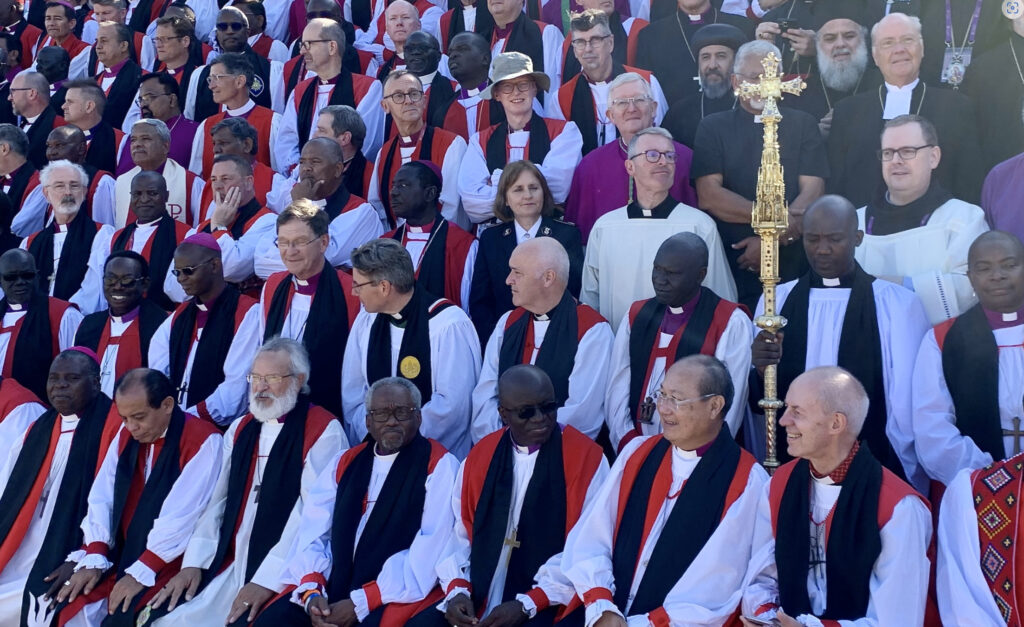 Just Welby really didn’t want to talk about sex at the recent Lambeth gathering; specifically homosexual sex. It was his elephant in the room: everyone knew it was there, the global south bishops wanted to talk about it and Welby wished it would just go away. Instead, he wanted to talk about: Safe Church; Anglican Identity; Reconciliation; Human Dignity; Environment and Sustainable Development; Christian Unity; Inter Faith Relations; Discipleship; Science and Faith and Mission and Evangelism.
Just Welby really didn’t want to talk about sex at the recent Lambeth gathering; specifically homosexual sex. It was his elephant in the room: everyone knew it was there, the global south bishops wanted to talk about it and Welby wished it would just go away. Instead, he wanted to talk about: Safe Church; Anglican Identity; Reconciliation; Human Dignity; Environment and Sustainable Development; Christian Unity; Inter Faith Relations; Discipleship; Science and Faith and Mission and Evangelism.
I left Mission and Evangelism until last for reasons that will become clear in a moment. As for the rest, they are all empty platitudes; they sound good, but no one is going to take them seriously. No one is interested in what a gathering of bishops thinks about the environment. The Anglican church is powerless to change the environment, or to develop sustainable energy. It can’t bring itself to reconcile with ACNA or ANiC, the average bishop knows as much about climatology or science as my cat and interfaith relations with Islam will end up being about as rosy as it was between Salman Rushdie and Ayatollah Ruhollah Khomeini.
The one thing that Justine Welby did have the authority to address, he chose not to: the continuing controversy of homosexual clergy and same-sex marriage in the Anglican Church of Canada and The Episcopal Church. That was the small elephant.
That brings us to Mission and Evangelism, which is, according to Lambeth:
Each diocese and every church should commit to prayer and listening guided by the Holy Spirit to discern how to bear faithful witness to Christ and authentically proclaim the gospel. Each Christian should strive through their witness for at least one person each year to come to faith and grow as a disciple. The Secretary General should support and monitor progress and report back to the Anglican Consultative Council.
What is missing is that nowhere does anyone say what “the gospel” is. Is it caring for the environment? Apologising for our ancestors who owned slaves? Presenting an appearance of unity? Planting trees? Promoting socialism? Violating the laws of logic by holding two proposition which cannot both be true as equally valid; after all, what is truth – hang on didn’t someone else say that?
As far as I know no bishop came within hailing distance of declaring that we are all sinners; our sin separates us from God the Father; if there is justice in this universe, we deserve the judgement of a holy God; we can do nothing ourselves to remedy this; in spite of this, God still loves us; Jesus paid the price for our sin, receiving our punishment upon himself; all who trust Jesus are given the free gift of forgiveness and eternal life. That is the Good News, the Gospel. Did any of the 600 or so bishops mention this? Did they forget? Does it embarrass them?
My suspicion is that most of them (we’ll exclude the global south bishops) don’t believe that this is the Gospel – and that is the real problem, the bigger elephant in the room.


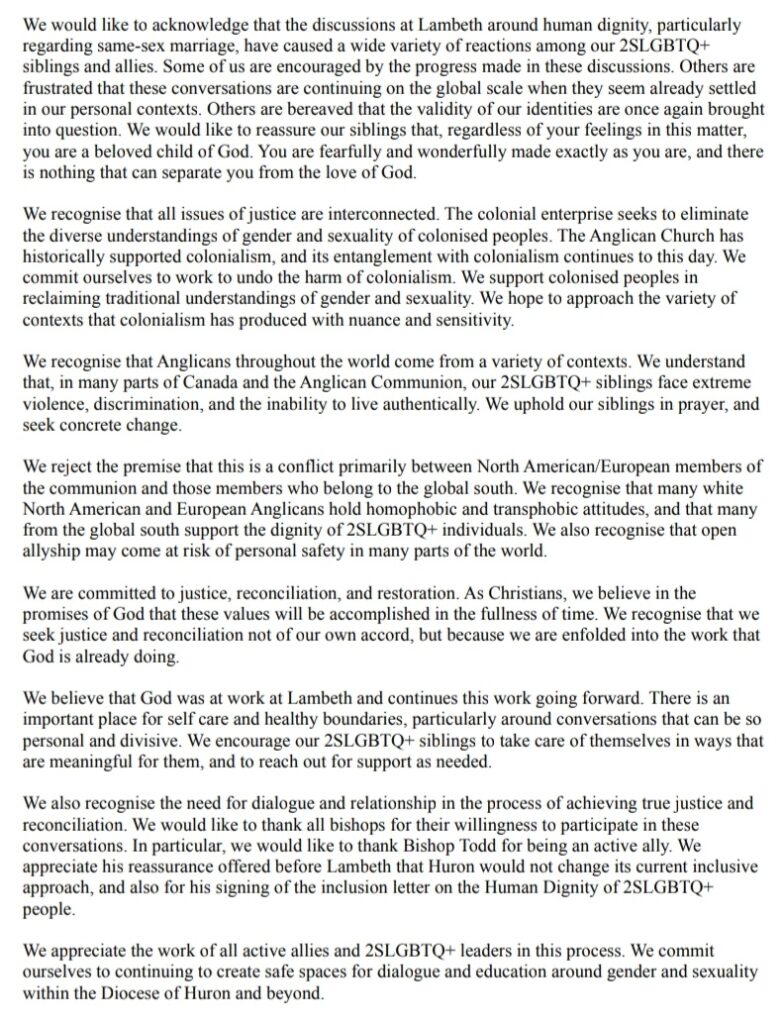
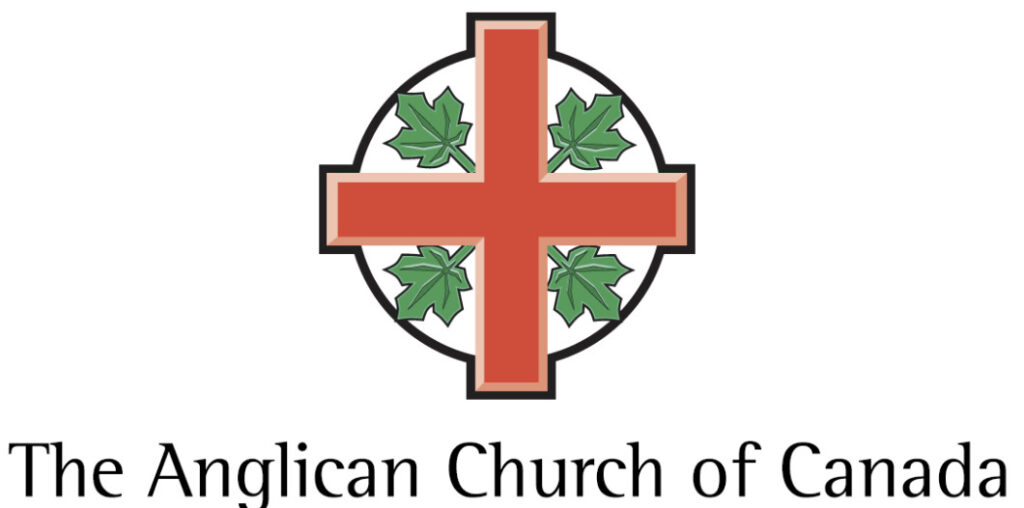 We will be returning to our dioceses with a renewed commitment to the Lambeth Calls for Mission and Evangelism, Safe Church, Reconciliation, Human Dignity and Climate Justice as well as those Calls that will be discussed on Hospitality (Christian Unity and Interfaith relationships), and Discipleship.
We will be returning to our dioceses with a renewed commitment to the Lambeth Calls for Mission and Evangelism, Safe Church, Reconciliation, Human Dignity and Climate Justice as well as those Calls that will be discussed on Hospitality (Christian Unity and Interfaith relationships), and Discipleship.
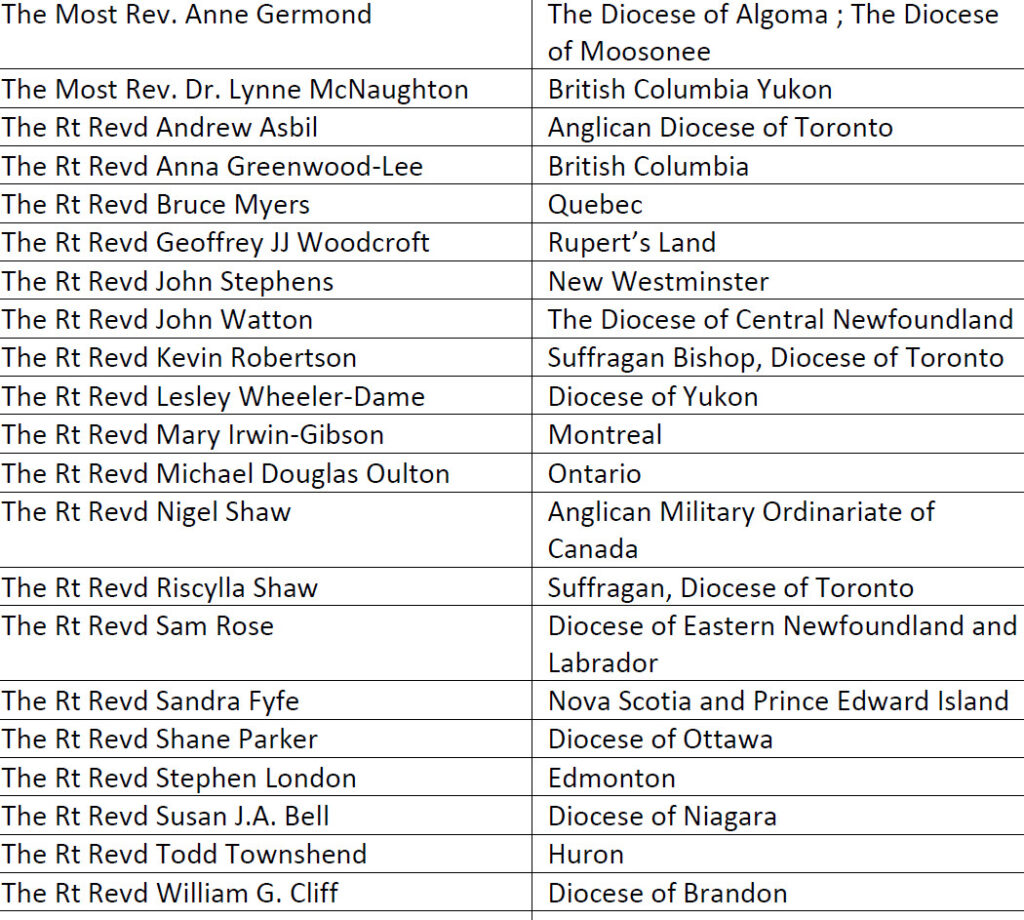
 As you can imagine, it was an easy transition from oil executive to Archbishop of Canterbury to the Ministry of Silly Walks – I, for one, have seen this coming for some time.
As you can imagine, it was an easy transition from oil executive to Archbishop of Canterbury to the Ministry of Silly Walks – I, for one, have seen this coming for some time.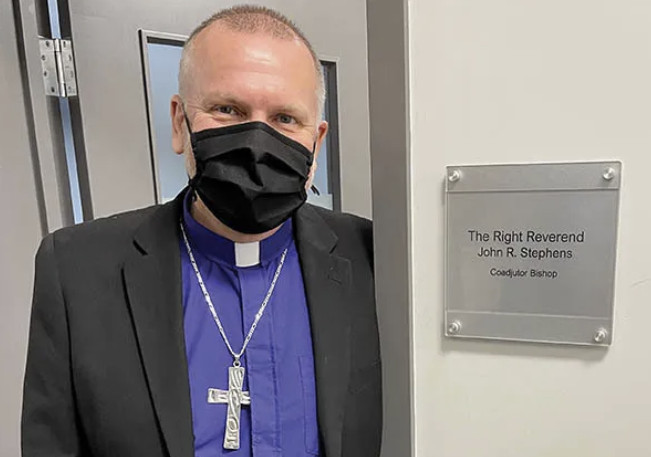


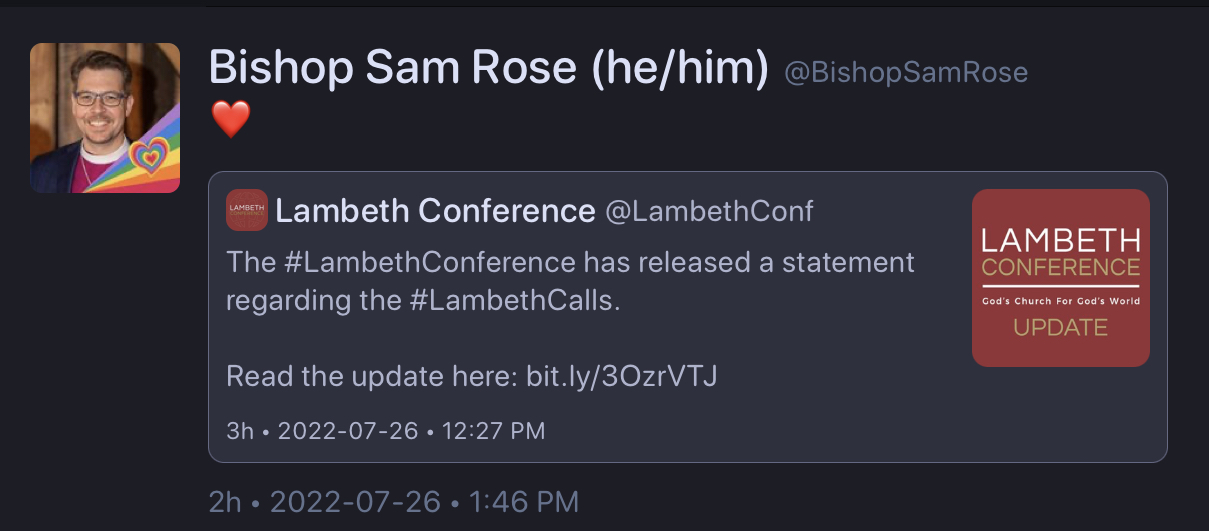
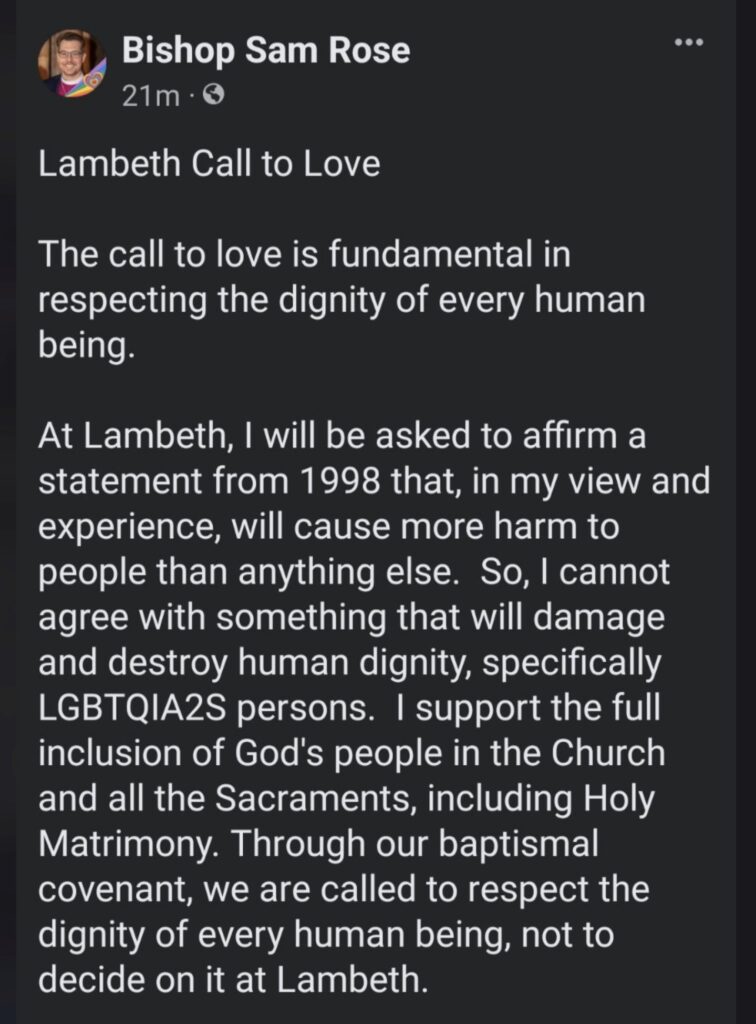


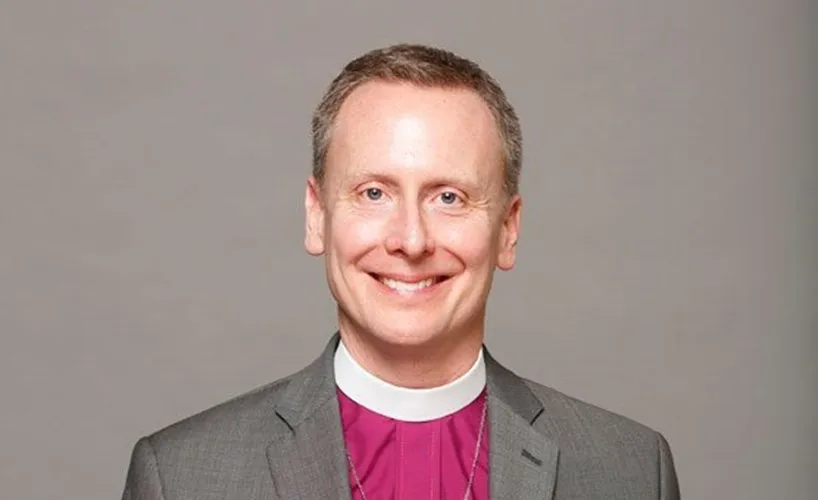 Kevin Robertson is the area bishop of York-Scarborough in the Diocese of Toronto. He is also a homosexual who is married to another man. As a result, he was invited to attend Lambeth 2022 but his sexual partner was not, a decision that make little sense in my opinion, although it is representative of a typical wishy-washy Anglican compromise.
Kevin Robertson is the area bishop of York-Scarborough in the Diocese of Toronto. He is also a homosexual who is married to another man. As a result, he was invited to attend Lambeth 2022 but his sexual partner was not, a decision that make little sense in my opinion, although it is representative of a typical wishy-washy Anglican compromise.